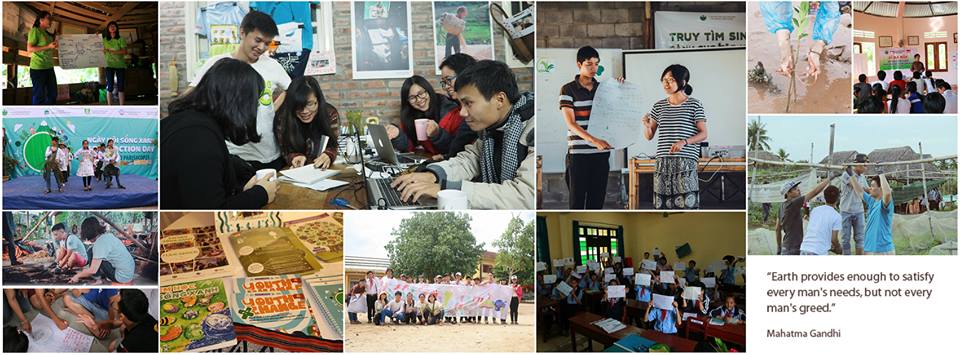Training of capacity building for environmentally friendly forest use April and May 2013
The natural forest area allocated for community is currently well protected and managed. This has become one of the main areas of focus of forest management and protection programmes in
So far in 2013, C&E, in association with FPD in Quang Nam, has organised four workshops in four villages: two in Xa Nghin I and Xa Nghin II, in Za Hung commune and two in AReh and Dh Rong, in Ta Lu commune, Dong Giang district Quang Nam.These workshops fall under the framework of the project called, “Sustainable management of natural forest through improving awareness and building capacity to improve the rights and legal status of ethnic minority communities to natural forest in central Vietnam (2012-2014)”. This projected has been put into effect by C&E in collaboration with the FPD in Quang
150 people in both communes participated in the training course. The trainees were from 4 different villages and they were the core force in each village’s Moderators or reputable people (for example, the elders, village secretaries, village chiefs, police officers, etc.), together with representatives from the local authorities, and social associations from the two villages. The trainers are experts in their fields who have had practical training experience and skills of Clubs/Groups’ activities, sustainable farming methods using land, local traditional farming techniques, as well as breeding species that are suitable to the locality. To help trainees who are ethnic people retain information easily, trainers used a variety of media and teaching methods, such as photos, video clips, brainstorming, and discussions, as well as the use of relevant case studies, and teambuilding exercises.
The training courses have achieved the aim of raising awareness and capacity building for ethnic minority communities in developing environmentally friendly use of forest model. The topics covered by the courses have had a significant impact on the awareness and understanding of the trainees, who have made very good progress in all areas, particularly in developing the forest-based livelihood and friendly with the environment. Most trainees have engaged well with the content and training methods, and have given constructive assessment of the challenges in the process of manufacture and economic development. Participants have shared ideas and experiences, as well as local knowledge, and actively discuss to come up with feasible and suitable solutions to the difficulties faced by local production.
The courses have demonstrated that people wish to increase their income and improve their family’s economic situation through the sustainable exploitation and management of forest , but due to limited access to resources, to science and technology, and to capital, it is very challenging to succeed. The training courses are considered a great opportunity to help participants improve their knowledge about appropriate farming methods for specific types of crops, species that have good advantage and are suitable with the ecosystems of the locality, in order to fully develop the economy of the area, while conserving the forests in the long term.
Photos taken of the course
